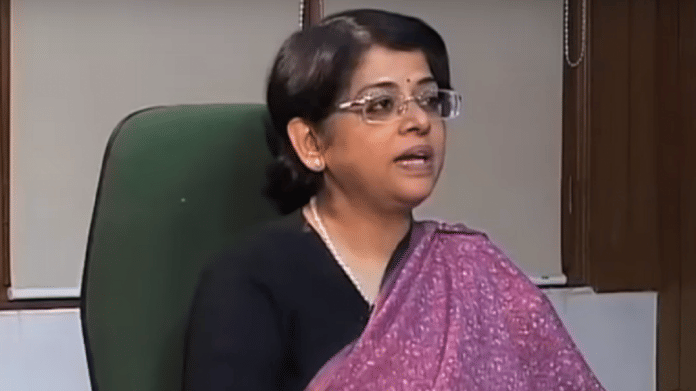Justice R. Banumathi has for years been the lone woman judge in the Supreme Court. With Malhotra, the top court now has two women and 23 men as judges.
New Delhi: Senior advocate Indu Malhotra was sworn in as a judge of the Supreme Court Friday, the first woman directly elevated from the bar to India’s top court.
CJI Dipak Misra administered her the oath in the presence of all the other judges.
Her elevation has brought cheer to the legal fraternity despite the controversy evoked by the latest round of judicial appointments.
Ever since the collegium recommended Malhotra for appointment as a Supreme Court judge, the move has been lauded as a step in the right direction for gender diversity in the top court.
Justice R. Banumathi has for years been the lone woman judge in the Supreme Court. With Malhotra, the Supreme Court now has two women and 23 men as judges.
Malhotra is also only the seventh woman judge of the court.
A cause for celebration
On 10 January, when Malhotra’s name was recommended by the collegium, it came as a warm surprise for many of her peers. The loudest cheer, however, was heard from the Ladies Bar Room in the Supreme Court.
“We got to know only when media houses started reporting it. Everyone was glued to the TV like we were watching a game and were so happy that one of us was going to be given that honour,” advocate Aishwarya Bhati said.
Malhotra’s 30-year career boasts of a series of achievements that shattered the metaphorical glass ceiling. Within five years of entering the bar, she topped the tough advocate-on-record examination conducted by the Supreme Court.
Only the second woman to be designated a senior advocate by the apex court, her practice spans a wide range of subjects, from industrial laws and arbitration to civil rights. Her father Om Prakash Malhotra, also a senior advocate, was an expert in industrial laws.
A woman with many hats
At a time when ‘activist-judges’ is a phrase hurled at judges stepping on the toes of the executive, Malhotra may have no qualms being called one. For years, she has been the counsel and a trustee for NGO Save Life Foundation.
Though her forte is commercial law, Malhotra has made her mark on several significant gender issues. She was one of the first members on the Supreme Court’s Vishaka committee, set up in 2012 to combat sexual harassment.
Just last week, as the apex court agreed to reconsider its widely criticised ruling on preventing arrests in domestic violence cases, it appointed Malhotra as amicus curiae.
Malhotra will have a relatively short tenure of around three years in the court as she is due to retire in 2021.






